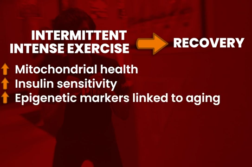PITTSBURGH, Pa. (Ivanhoe Newswire)— In the next year, more than 32,000 Americans will be diagnosed with multiple myeloma, a cancer of the body’s white blood cells called plasma cells. Almost 13,000 will die from the disease. Now, researchers are testing a type of immunotherapy that unleashes cells into the body designed to destroy the cancer.
Younger patients diagnosed with multiple myeloma sometimes undergo stem cell transplant to replace the diseased bone marrow. In other cases, drugs can target the cancer cells and kill them. For patients who don’t respond to three medications, researchers are testing an immunotherapy treatment called CAR T therapy. A sample of the patient’s T-cells is collected from the patient’s blood, then modified in the lab, so that when the T-cells are reinfused into the patient those cells attack the cancer.
“With the CAR T-cells we give one treatment, the patient goes into remission, and they come into the clinic just to monitor them, to see how they’re doing,” explained Anastasios Raptis, MD, PhD, a hematology oncologist at UPMC Hillman Cancer Center.
Dr. Raptis says in one clinical trial patient survival has gone from three months to 20 months without the cancer recurring. In other trials, patients are seeing complete remission.
“In all these trials, the response rates are amazing. It goes from 73 percent, all the way up to 100 percent response rates,” shared Dr. Raptis.
Cutting edge therapies giving patients back their quality of life.
Currently, FDA approved CAR T-cell therapies are used for patients with non-Hodgkin’s lymphoma or for childhood acute lymphoblastic leukemia, or ALL. Researchers are testing CAR T-cell therapy not only for multiple myeloma, but other blood cancers and solid tumor cancers.
Contributors to this news report include: Cyndy McGrath, Executive Producer & Field Producer; Kirk Manson, Videographer; Roque Correa, Editor.
To receive a free weekly e-mail on Medical Breakthroughs from Ivanhoe, sign up at: http://www.ivanhoe.com/ftk
Sources:
https://www.cancer.org/cancer/multiple-myeloma/about/what-is-multiple-myeloma.html
MEDICAL BREAKTHROUGHS
RESEARCH SUMMARY
TOPIC: FIGHTING MULTIPLE MYELOMA WITH CANCER-KILLING CELLS
REPORT: MB #4835
BACKGROUND: Multiple myeloma is a cancer of plasma cells that affects an estimated 32,270 adults a year and will result in up to 12,830 deaths. Normal plasma cells are a vital part of the immune system and are found most commonly in bone marrow. The immune systems is made up of varying types of cells that fight infection. Lymphocytes are one of the immune system’s main types of white blood cells including T cells and B cells. Lymphocytes can be found in lymph nodes, bone marrow, the intestines, and the bloodstream. When B cells fight an infection, the evolve into plasma cells that make antibodies to attack the infection. When these plasma cells become cancerous and start growing out of control, this is called multiple myeloma.
(Source: https://www.cancer.org/cancer/multiple-myeloma/about/what-is-multiple-myeloma.html)
DIAGNOSING: Multiple myeloma is often based off tests such as blood chemistry, urine, Serum protein electrophoresis, or quantitative immunoglobulins. Bone marrow biopsies can also be used, as well as the patient’s symptoms and the doctor’s physical exam of the patient. A multiple myeloma diagnosis can only be given if a patient has a plasma cell tumor, proven by biopsy, or at least 10% plasma cells in the bone marrow. This must also be accompanied by either high blood calcium level, poor kidney function, low red blood cell counts, holes in the bones from tumor found on imaging studies such as MRI or CT, increase in one type of light change in the blood, or 60% or more plasma cells in the bone marrow.
(Source: https://www.cancer.org/cancer/multiple-myeloma/detection-diagnosis-staging/testing.html)
NEW TECHNOLOGY: CAR T-cell therapy is a new treatment that has been successfully tested in mice. The therapy targets a protein called CD229, the source of treatment-resistant cells that could lead to disease recurrence. In CAR T-cell therapy, the patient’s own T-cells are removed and genetically modified to produce a protein receptor on their surface so that when they are reinfused into the patient, they can recognize and attack cancerous cells. Anastasios Raptis, MD, PhD, Hematology Oncologist at UPMC Hillman Cancer Center and Clinical Associate Professor of Medicine at the University of Pittsburgh School of Medicine says, “The CAR T therapy is a form of immunotherapy. So the basis of this approach is the utilization of a patient’s own lymphocytes. So we harvest that lymphocytes from the peripheral blood. And we send them to a manufacturing facility where they genetically engineer the T lymphocytes in such a way that when we infuse them back into the patient, they will recognize a specific antigen that is expressed by the myeloma cells. And this antigen is called BCMA. That is the most common target of the current CAR T cells.”
FOR MORE INFORMATION ON THIS REPORT, PLEASE CONTACT:
CYNDY PATTON
412-415-6085
If this story or any other Ivanhoe story has impacted your life or prompted you or someone you know to seek or change treatments, please let us know by contacting Marjorie Bekaert Thomas at mthomas@ivanhoe.com




